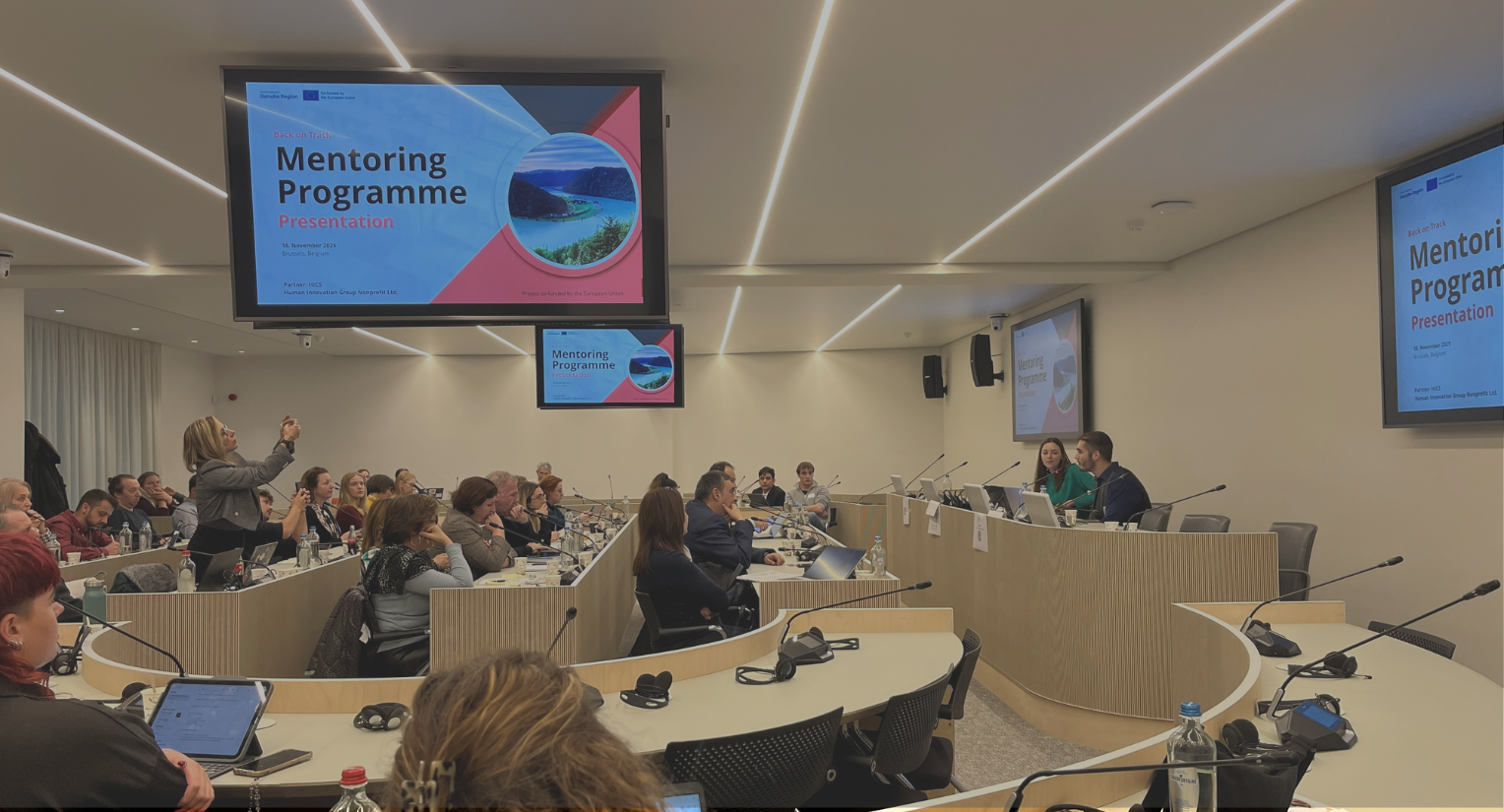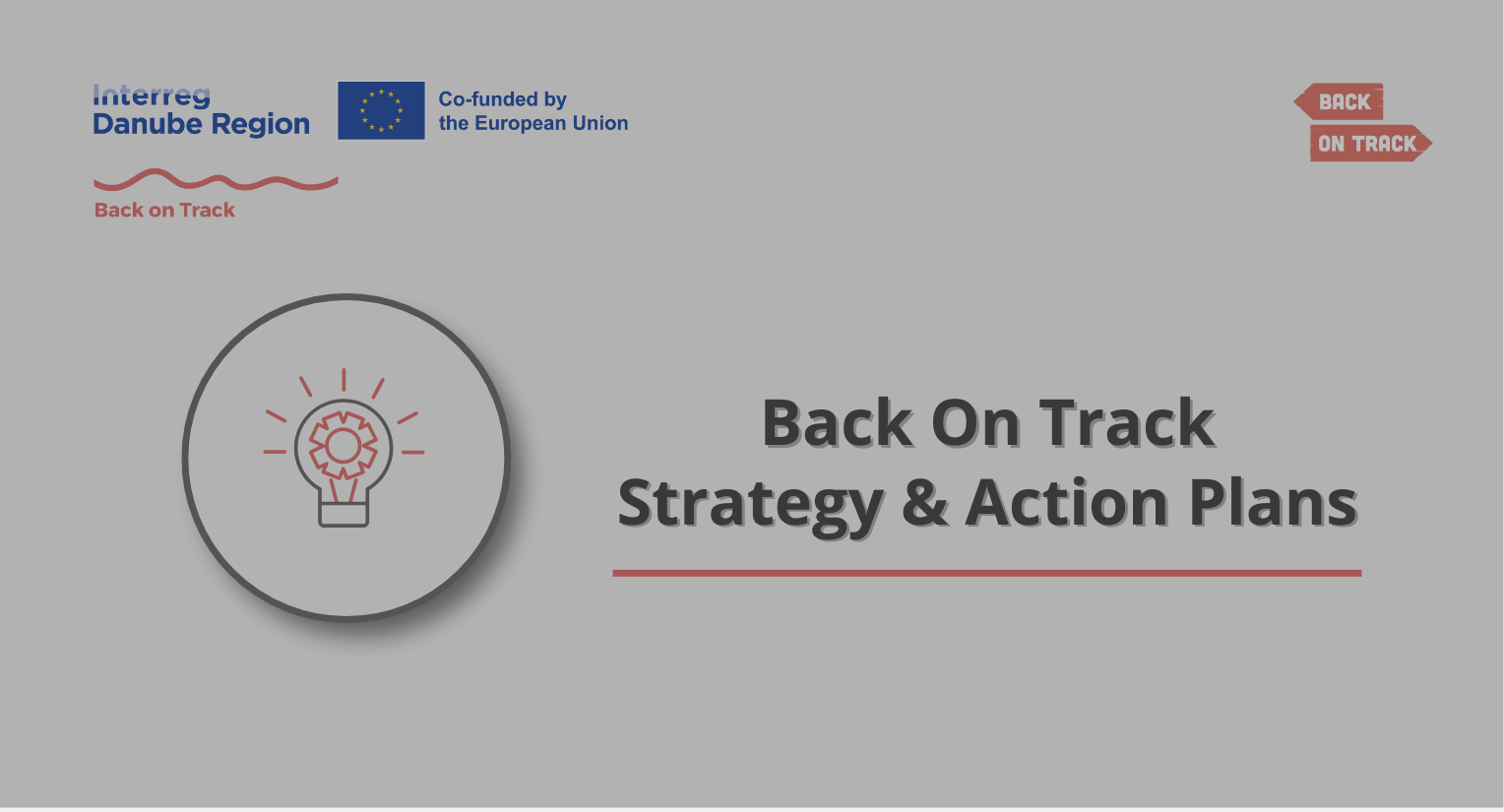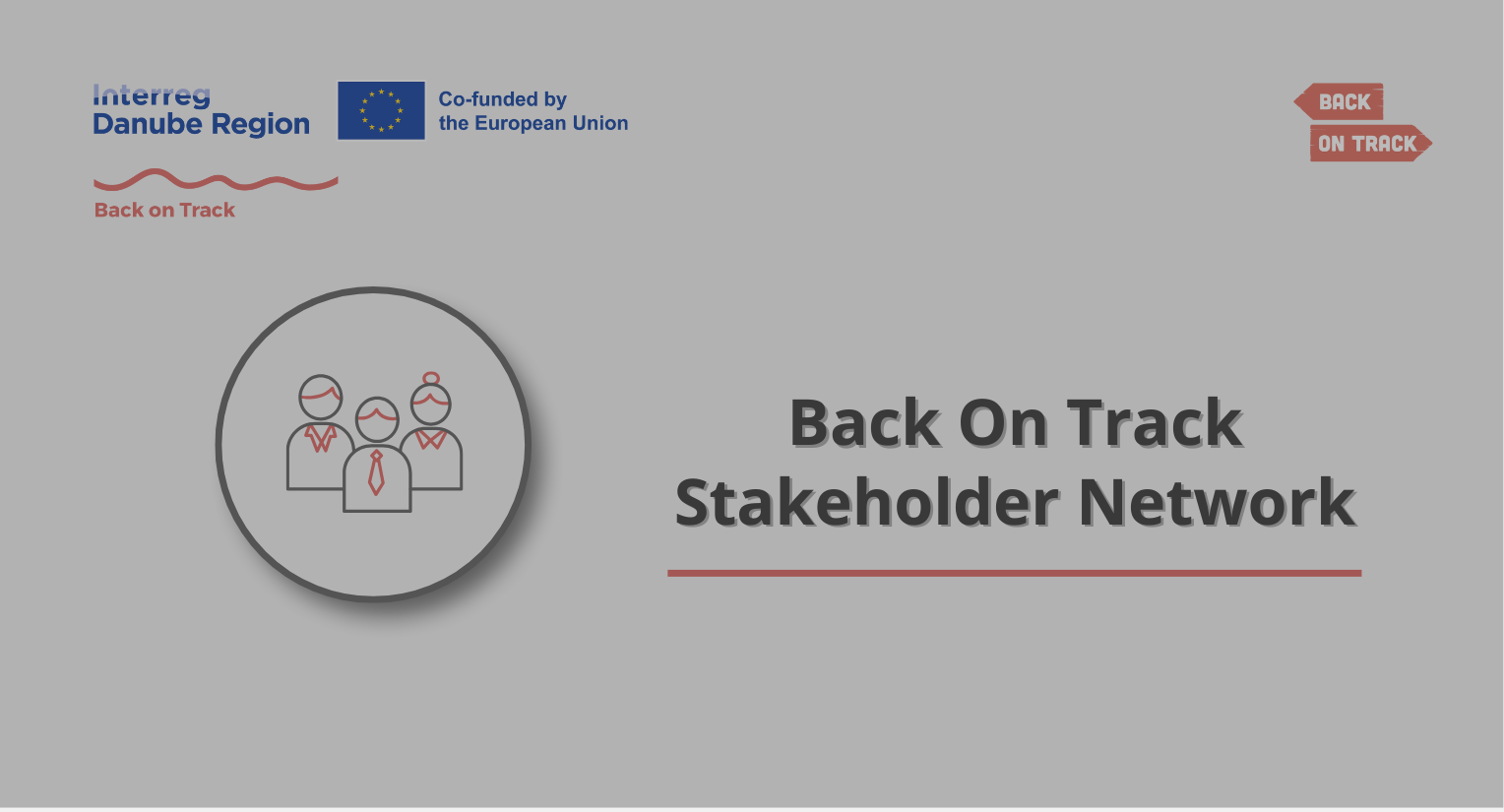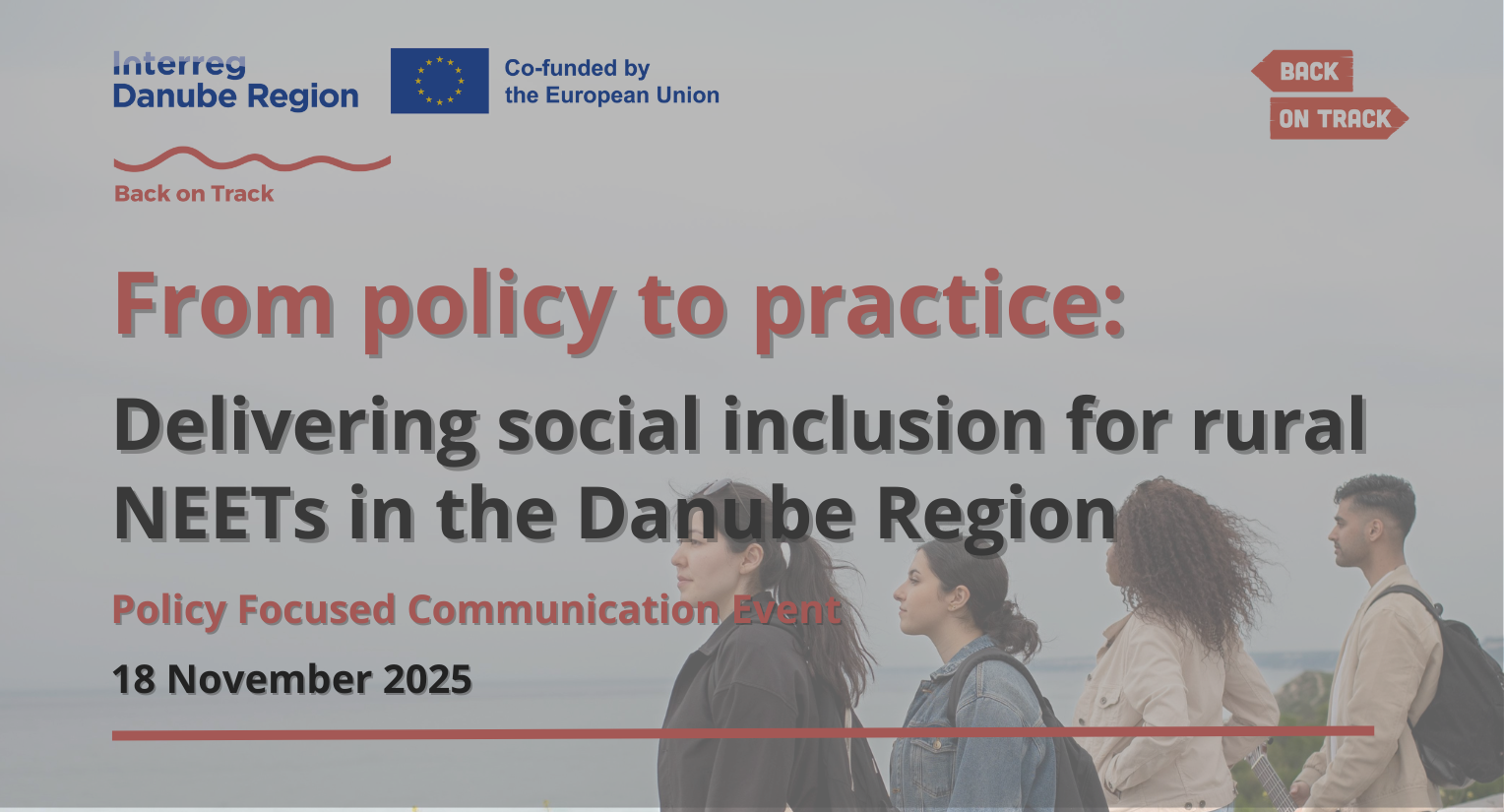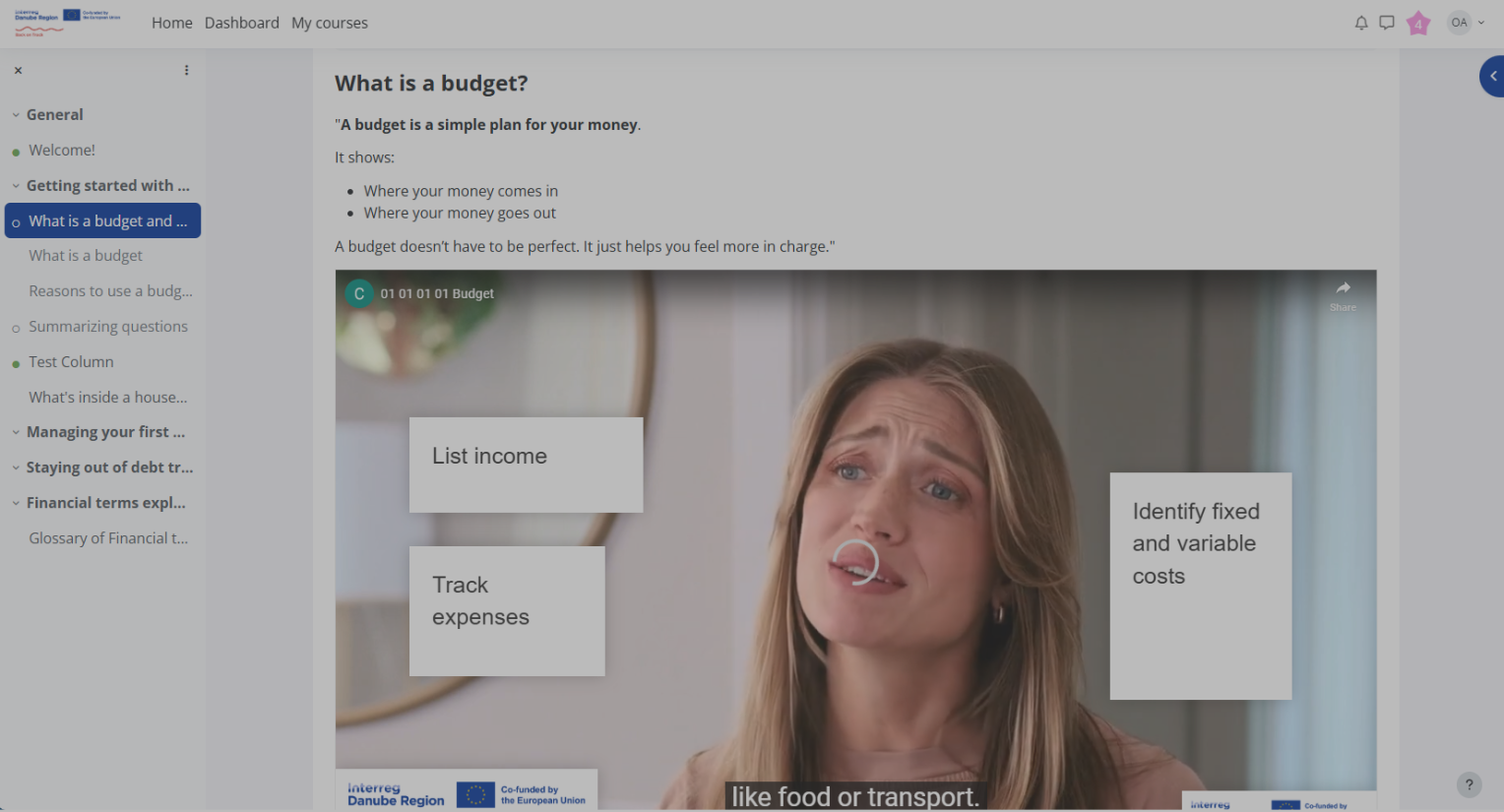
E-learning to boost the transition to education and employment
The Back on Track project is taking a major step forward in supporting NEET youth (young people not in education, employment or training), especially in rural areas of the Danube Region. Through an innovative and inclusive e-learning curriculum, the project is creating new opportunities for youth to build skills, regain confidence, and re-enter the path toward education or work.
This initiative responds directly to the urgent need for flexible, mobile-friendly learning tools that address both the emotional and practical barriers faced by NEETs in rural communities.
What is the Back on Track curriculum?
As part of one of its work packages, Back on Track is developing a modular digital curriculum aligned with EQF levels 3–5. The aim is simple but powerful: to equip disadvantaged young people with the core competencies they need to transition into the labour market, vocational education, or even self-employment.
The e-learning curriculum is built around seven essential modules that reflect real-world demands and personal development goals:
Financial Literacy
Emotional Intelligence & Self-Management
Professional Skills & Job Orientation
Communication & Collaboration
Digital Skills for NEETs
Problem Solving & Critical Thinking
English for Employability
Each module includes 15 learning units per level, from beginner to advanced, and is designed for modular, flexible learning on smartphones or tablets.
Designed with NEET youth in mind
What sets this curriculum apart is its learner-first design. It was built using learner personas, characters like Mila, a young mum returning to education, or Niko, a graduate feeling stuck. These personas ensure the content feels relatable, emotionally supportive, and grounded in the lived realities of NEET youth.
The curriculum also follows key European frameworks such as the EntreComp and the European Financial Driving Licence (EFDL), helping participants prepare for concrete next steps like VET programmes, job readiness, or micro-entrepreneurship.
From content to course: E-learning on Moodle
Alongside the curriculum development, the team is turning the modules into engaging Moodle-based online courses. These are optimised for young people in rural areas who may face challenges like low connectivity, limited time, or low confidence.
Here is what makes the Back on Track e-learning approach unique:
Micro-learning format: 15–20 minute units, easy to complete on a smartphone.
Supportive, motivating tone: Avoids jargon and embraces the ups and downs of learning.
Scenario-based learning: Learners follow realistic stories and challenges through interactive tasks.
Mobile-first design: Accessible offline, with minimal data usage.
Multi-sensory content: Including audio, visual explainers, drag-and-drop activities, and choose-your-own-path features.
Testing with youth in the Danube region
In April and May 2025, the first pilot courses in Professional Skills and Financial Literacy are being tested with NEET youth in Danube Region countries. Feedback is already shaping how the courses address local job sectors, common emotional blockers, and preferred learning styles.
Digital skills are key
For young people across the Danube Region, digital learning is not just about acquiring knowledge. It is about building confidence, overcoming isolation, and taking control of their future. Through this curriculum, the Back on Track project is making learning more accessible, flexible, and relevant to NEET youth where it’s needed most.
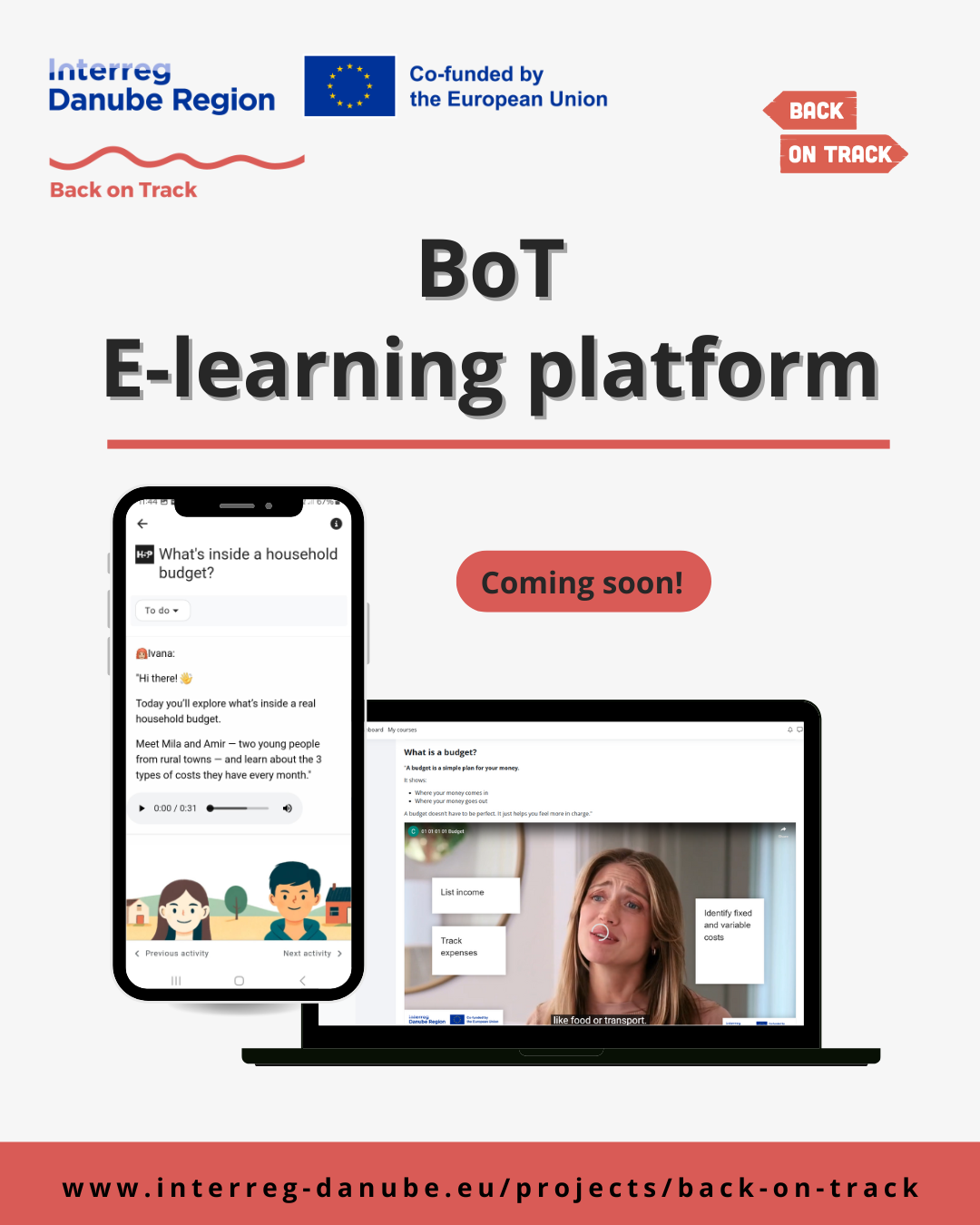
Note: Some elements in the course materials have been generated using artificial intelligence for illustrative purposes. For example, the woman shown in the screenshot is an AI-generated character.
News & Events
Read the most recent updates and explore the upcoming events.

